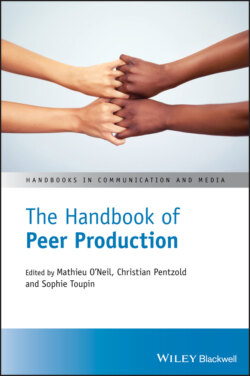Читать книгу The Handbook of Peer Production - Группа авторов - Страница 19
8 Virtue, Efficiency, and the Sharing Economy
ОглавлениеMargie Borschke
Peer production is assumed to be virtuous and public‐spirited, a networked socio‐economic system of production, that is efficient, promotes individual agency, harnesses collective knowledge, creates robust technologies and information and contributes to sustaining the public domain in the Internet era. This organizational innovation is also often associated with the rise of social networking technologies, practices, and platforms in the 2000s and an ethos of participation, sharing, and remix. Yet at the heart of key conceptualizations of peer production is a tension between virtue and pragmatism, between a belief that particular kinds of networked spaces and practices can enable the development of personal and social virtues and also be more efficient than other forms of production. This tension becomes more visible in the metaphor, practices, and platforms of the sharing economy where ethical debates about agency, property, privacy, and collective rights abound and where utopian rhetoric acts as a cover for the corporate drive for efficiency over ethical concerns. This chapter considers these tensions and how the ideals of peer production were shaped by their social and material histories.
